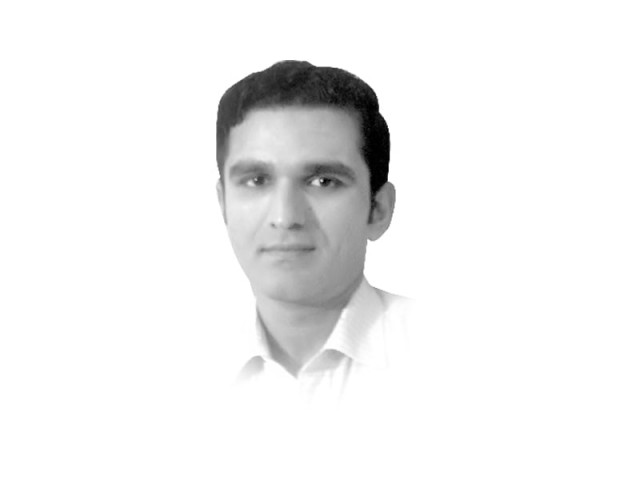Blurring the lines
Labelling someone an extremist for thinking that Taliban are freedom fighters will make 95% of Pakistanis extremists

The writer teaches at IT University Lahore and is the author of A Princely Affair: The Accession and Integration of the Princely States of Pakistan, 1947-55. He tweets at @BangashYK
The word ‘extremist’ obviously has a wide meaning — at a basic level it means someone holding strong exclusionary views. One can be an extremist by refusing to drink Coke as compared to Pepsi, or preferring Messi to Ronaldo; but the term ‘Muslim extremist’ usually refers to someone who has such extreme views that they are willing to harm or kill others for it. ‘Muslim extremism’, in the modern context, is not a light proposition. Hence, to label someone who has had a privileged secular education throughout his life, a ‘Muslim extremist’ is misconstruing the concept.
My main reason in pointing out this difference is that there is a real and existential battle going on in Pakistan, literally for its soul. In this battle we must not forget who we are fighting against. We are not against peaceful and democratic religious parties who have a religiously motivated agenda — it is their right to popularise their manifesto. These people might have different views than the mainstream — some of them extreme, but as long as they do not harm anyone, incite violence or advocate the overthrow of the state, there is no problem with them. We are also not against people who have certain views due to misinformation, indoctrination, peer pressure, or the like — these people need better education and more avenues for debate and reflection. We are only against those who harm or kill others because they do not conform to their views and who want to overthrow the state — these are the extremists we are fighting.
Labelling someone an extremist just because they thought that 4,000 Jews did not go to the World Trade Centre on 9/11, or that the Taliban are freedom fighters, would make nearly 95 per cent of Pakistanis extremists. People who are highly placed and highly educated, including the current Vice-Chancellor of Punjab University, have reportedly such views, and while they are erroneous, and even silly views, having them does not make the person an extremist. Therefore, we must not blur these lines.
A ‘former Muslim extremist’ could be a student of mine from Forman Christian College who came from a rural background, studied in an Urdu medium school all his life and struggled with English even in university. Between his school and university life, he actually joined an extremist organisation and even undertook paramilitary training with them over several weeks. Even at FC College, he would often comment on how odd he felt studying with girls and non-Muslims, but that he had now learnt that imposing one’s views on others was wrong and that he needed to keep an open mind, learn more, and first become a better human being. This student is still on his journey as a former extremist.
Published in The Express Tribune, March 13th, 2016.
Like Opinion & Editorial on Facebook, follow @ETOpEd on Twitter to receive all updates on all our daily pieces.














COMMENTS
Comments are moderated and generally will be posted if they are on-topic and not abusive.
For more information, please see our Comments FAQ